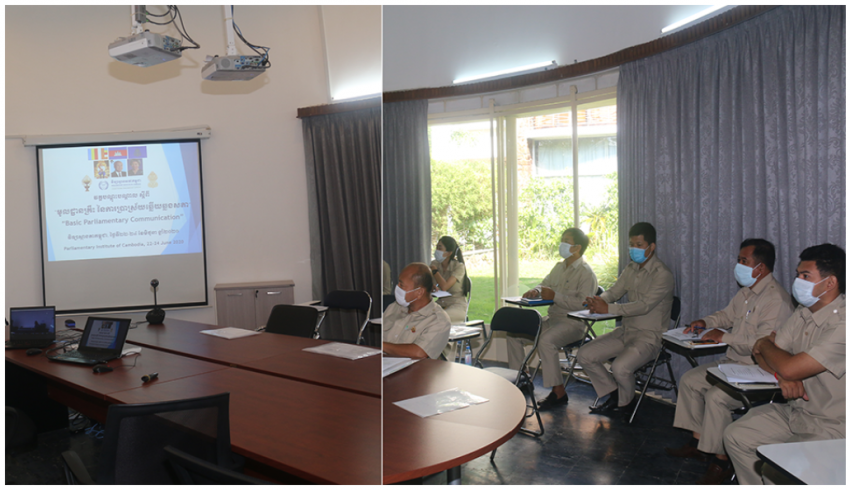A series of training sessions, held by PIC and focusing on basic communications, took place from Monday 22 to Wednesday 24 June at the Senate compound. The 12 participants were Senate staff from the secretariats to parliamentary Commissions and regional departments who are particularly involved in organizing public consultations and oversight field missions.
The training included the role of communications and public relations in parliamentary activity, guidelines on how to organize public consultations, and communications planning. Another session on report writing gave participants guidance in writing analytically to produce information to support parliamentary action after an event has taken place.
Each session included some theory supported by practical activities and the sharing of experiences, with the participants actively engaged in the training process. In group work, they collaboratively discussed, exchanged ideas, shared experiences and challenges in organizing oversight field missions, public consultations, report writing, monitoring and follow-up.
Speaking on behalf of the participants, Mr. Kol Sakhoeun thanked PIC for providing the course. ‘MPs need to communicate with the people to tell them about their roles and the work of the Senate and also to bring back the requests of the people, and information about the challenges they face – especially those in rural areas,’ he said. ‘We see the importance of this training for Senate staff who are the technicians in parliamentary work: this course has really built our capacity to serve members of the Senate in the context of PR and communications with constituents.’ On behalf of the participants, he requested PIC to offer further training, so that they could more effectively and efficiently fulfill their tasks.
Re-iterating the remarks of Mr. Kol Sakhoeun, Mr. John Christopher, Director of Capacity Development for PIC, also commented on the importance of good communications in parliamentary activities. He expressed the hope that the participants would keep in touch with PIC, and feel that they could contact the training team again if they had questions about their communications work.
The class was limited to 12 participants to facilitate social distancing in response to the COVID-19 pandemic.


